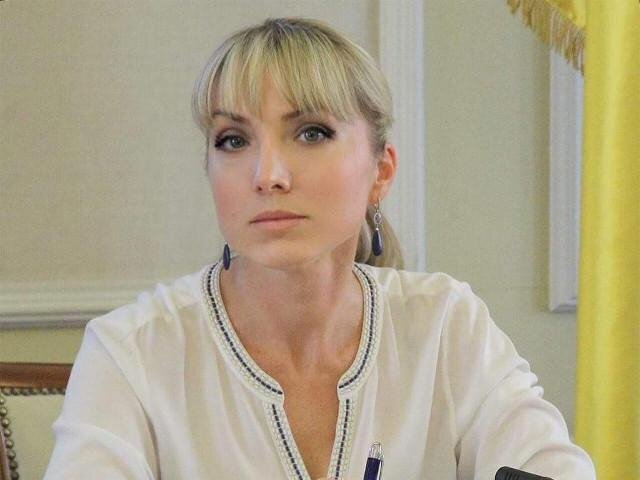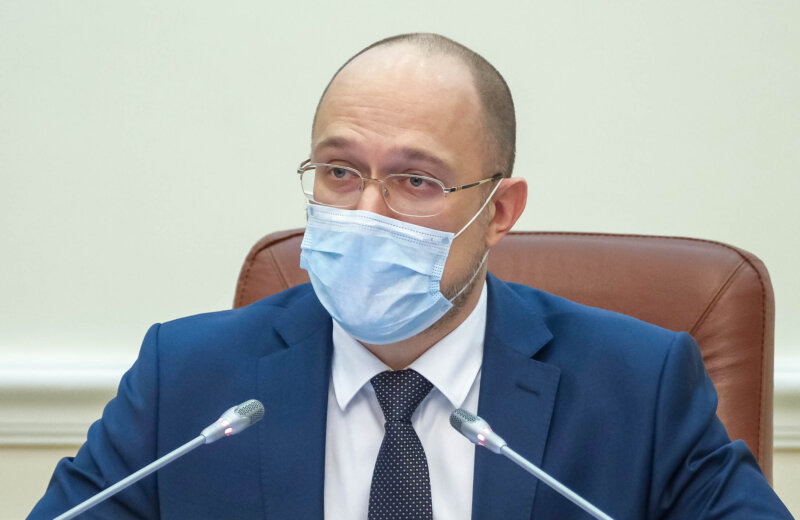Editor’s Note: This story was originally published on May 2 and has been updated with DTEK’s response received on May 3.
Volodymyr Zelensky’s presidency raised fears that he would serve the interests of his old business partner, Ihor Kolomoisky.
But it is now billionaire Rinat Akhmetov, Kolomoisky’s frequent rival, whose interests are ascendant.
A targeted lobbying campaign by Akhmetov’s companies is starting to bear fruit. His most recent victory is the energy ministry’s planned cut to nuclear power in favor of renewables and coal. Akhmetov’s company DTEK stands to gain the most — it controls two-thirds of coal power and close to a fifth of renewable power in Ukraine.
In late April, the energy ministry ordered the shutdown of three out of 11 active nuclear energy blocks in Ukraine and a reduction in capacity for seven nuclear blocks.
This decision means energy prices will rise. Nuclear power is the cheapest in the country — Petro Kotin, the head of state nuclear operator Energoatom, estimated it at Hr 0.65 – 0.70 per kilowatt-hour. Renewables are the costliest, with a feed-in tariff of 0.15 euros per kilowatt-hour (about Hr 4.41).
Ukraine’s energy costs are already the highest in the region — about 50 euros per megawatt-hour, compared to 30 euros in Poland and 17 euros in Hungary.
A DTEK spokeswoman took the Kyiv Post’s questions by email on April 29, but did not respond by the time the article was published online on May 2. After the article was published, DTEK contacted the Kyiv Post on May 3, directing it to the company’s statements on its website and social media.
On the company’s Facebook page, DTEK CEO Maksym Timchenko posted a video after meeting with the Anti-Crisis Energy Headquarters, chaired by Prime Minister Denys Shmygal. The energy plan was discussed and finalized at this meeting.
“Everyone confirmed that the current energy balance is fair and reflects today’s reality,” said Timtchenko, referring to relevant government authorities and market stakeholders, which included the representatives of energy companies at the meeting.
However, a reduction in nuclear capacity can also deepen problems for Energoatom. The state company Energorynok already owes billions of dollars to the enterprise, which makes more than half of Ukraine’s electricity. Kotin had described the debt as “catastrophic.” Parliament has approved a plan to issue government bonds to cover the debt.
Kotin has since stated that Energoatom has dropped its objection to the nuclear reduction plan.
There are multiple factors at play behind the energy ministry’s projection, including lower energy demand, soaring renewable energy supply over the summer months and nuclear reactor maintenance.
Acting Energy Minister Olga Buslavets, speaking on the program Podrobnosti, stated that the reduction in nuclear energy is a normal practice, as numerous nuclear energy units are in need of repairs, which have been delayed in recent years.
She also acknowledged that the renewable feed-in tariff is expensive and said that the Ukrainian economy cannot afford it. She promised to work with Shmygal to find a solution and reduce the tariff.
However, DTEK’s lobbying may have played a role as well.
Lobbying plan
A DTEK internal document seen by the Kyiv Post revealed an alleged multi-pronged lobbying plan to lift energy price caps, reduce public service obligations on coal power, do away with anti-monopoly investigations against DTEK and stop energy imports from Russia and Belarus.
DTEK didn’t respond to an inquiry asking about the existence of such a plan by the time of publication.
The company’s financial performance has been plunging due to low competitiveness, low energy demand, warm weather, and the COVID-19 quarantine.
It wouldn’t be the first time when DTEK was alleged to have a plan like that.
In 2015, then-lawmaker and former investigative reporter Mustafa Nayyem published a similar document that outlined DTEK’s plan to cement its dominance over the energy sector. It was known as the “Krepost” (“Fort”) plan. DTEK denied its authenticity.
“They are trying to make the key authorities loyal to them,” said Gerus.

On April 16, 2020, Ukraine’s Cabinet of Ministers appointed Olha Buslavets as first deputy minister of energy and environmental protection.
DTEK has also been implicated in numerous alleged schemes to give it an unfair advantage in the coal and energy markets. These included the Rotterdam+ coal pricing scheme, which by some estimates cost taxpayers an extra $1 billion. It is also suspected in the creation of artificial energy shortages and hiking energy prices in western Ukraine on the so-called “Burshtyn energy island,” where it maintains a monopoly.
The company has also been accused of ties with major officials. DTEK’s most recent stroke of good luck came at the same time when some of the energy ministry’s former top employees took high posts in the government.
Shmygal, the prime minister, rose to prominence by working for DTEK. In March, Shmygal said he was not close to Akhmetov and never talked with him.
The Schemes investigative reporting project found that his new energy adviser, Ihor Maslov, also previously held a senior role in DTEK.
Shmygal was also instrumental in getting acting Energy Minister Olga Buslavets into her current role. Buslavets didn’t have the parliamentary votes for confirmation, according to a source in government, who did not wish to be named because of a lack of authorization to speak with the press. Previously, Buslavets directed energy markets at the ministry.
Former Energy Minister Oleksiy Orzhel told Novoye Vremya that Buslavets was against price caps on energy, which DTEK wants to remove. Nashi Groshi reported that she unsuccessfully lobbied for a reduction of gas prices for Akhmetov’s Luhansk-based thermal plant.
The energy ministry did not immediately respond to requests for comment.
According to the source, Buslavets’ new energy plan is making her unpopular among lawmakers, making it unlikely that she will get enough votes to be confirmed as a full-fledged minister.
New energy balance
Ukraine is facing lower energy demand, partly due to the COVID-19 pandemic and quarantine.
On April 29, the energy ministry released its new energy balance projection that will see big cuts to nuclear power. Hydroelectric power will also decrease — the unusually warm and snowless winter led to low river water levels.
Some coal power will see a sharp increase in May compared to April but will see an overall cut, smaller than the cuts to hydro and nuclear. Meanwhile, coal plants that produce both power and heat will see a boost in the energy mix this year.

Prime Minister Denys Shmygal speaks during the Cabinet of Ministers meeting in Kyiv on April 1, 2020. (Goodzenko Anry/kmu.gov.ua)
According to a letter from Energoatom Director Valeriy Kravets to Vitaliy Zaichenko, the head dispatcher at Ukraine’s grid operator Ukrenergo, the plan is to take down three nuclear energy blocks out of the 11 that are currently active. One block will be shut down for three months and the other two for four months. Seven blocks will run at reduced capacity.
Ukraine has a total of 15 nuclear reactors across four power plants with a total capacity of up to 13,000 megawatts. Several months ago, that output was over 11,000 megawatts but has now been reduced below 7,000. At its lowest output this year, nuclear power will go as low as 4,900 megawatts.
Zaichenko stated on Facebook that, right now, 11,000 megawatts of nuclear energy is excessive and dangerous. Too much energy is flowing from other sources including renewables, which will produce much more power under the summer sun.
Gerus said that, without Energoatom, DTEK’s renewable and coal plants can work without interruption and make more money at the consumers’ expense.
The green problem
Ukraine’s renewable feed-in tariffs are very high, despite having relatively short terms. Last year, the country passed a law that would replace fixed tariffs with auctions starting in 2020.
This led a wave of developers to enter Ukraine in 2019. In one year, total renewable generation tripled to almost 8% of the country’s energy mix, leading to soaring costs for Guaranteed Buyer, the state enterprise in charge of buying all renewable power. While the renewable generation brings Ukraine some 8% of its energy, it takes up some 20% of the costs.
Guaranteed Buyer is funded by transmission fees collected by the grid operator, Ukrenergo. It also gets money by reselling a fraction of Energoatom’s and Ukrhydroenergo’s power, which has brought shrinking revenues in recent months.
But the other problem is that industrial consumers are simply not paying their full transmission costs, explains Dmytro Sydorov, an electricity market analyst at the ExPro consultancy. As of January, the biggest debt, over Hr 500 million ($18.7 million), was owed by DTEK’s companies.
Debt to the green sector ballooned. The problems led Orzhel, the former energy minister, to consider retroactively cutting the green tariff. This worsened the standoff with the renewable industry, whose players said they would have no choice but to go to international arbitration courts. The two sides have been in negotiations for months without reaching an agreement.
Renewable energy companies were willing to take a cut to the feed-in tariff in exchange for extending its terms. However several compromise plans fell through. Renewable investors had told the Kyiv Post that Orzhel was not willing to listen.
Gerus said that Akhmetov’s DTEK has taken a leading role in lobbying in favor of renewable producers, using other players in the market to help push its agenda.
Renewable producers have responded that government officials are focused on fighting against the oligarch-owned DTEK while ignoring reputable companies that entered Ukraine fairly and expect to receive their feed-in tariffs as agreed. The energy ministry projected that the debt to green energy producers can grow to Hr 19 billion ($710 million) in 2020.
But the state also owes Energoatom a lot of money. In just the first three months of this year, the state enterprise Energorynok’s debt before Energoatom has swelled to Hr 4.7 billion ($174.5 million), according to Kotin. In total, Energorynok owes almost Hr 12 billion to Energoatom. Energorynok filed for bankruptcy in January.
Speaking to the publication Censor.Net, Kotin said that even though the nuclear producer makes electricity eight times cheaper than green power plants, the greens get first priority for payments.
On April 30, parliament voted in favor of legislation that would cover the debt via the issue of government bonds.
“Green generation is the future of Ukraine’s energy. Today, it is a story of success,” said Timchenko in the video posted on Facebook. “And we must under no circumstances turn it into a story of failure. If we don’t earnestly communicate with renewable investors, they will not come back a second time.”

Rinat Akhmetov, Ukraine’s wealthiest man, has been placed at the heart of numerous alleged plans to unfairly improve market conditions for his company, the energy and coal giant DTEK. (AFP)
Costs and Balancing
Green energy output is high by day and low by night, requiring other sources to balance it out. The energy ministry stated that it is difficult and dangerous to frequently switch nuclear power on and off to make up the difference.
This leaves coal power, which Gerus expects to benefit from the projected energy mix.
DTEK mines close to 90% of all the coal in Ukraine and produces two-thirds of all its coal energy. It also imports a lot of coal from Russia.
Coal stockpiles have gone unused due to the warm winter, which added to the company’s previous financial troubles. DTEK announced in April it was shutting its mines, effectively laying off 30,000 employees. The energy ministry is coming to its defense.
“Tens of thousands of families have lost more than half of their income,” the ministry wrote. “The coal industry is one of the most important elements of Ukraine’s energy independence and it is, therefore, essential to ensure the smooth operation of domestic coal enterprises.”
Political observers said many times over the years that DTEK was using its miners to blackmail the government into giving the company what it wants. DTEK always denied such claims. Timtchenko stated that the new energy balance will likely allow the company to restart its enterprises this month.
